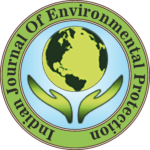IJEP 43(3): 270-276 : Vol. 43 Issue. 3 (March 2023)
Neha and Arun Kansal*
TERI School of Advanced Studies, Coca-Cola Department of Regional Water Studies, New Delhi -110 070, India
Abstract
Based on a questionnaire survey administered to 540 adolescents (10–14 years old), the study offers some insights into what adolescents perceive as the causes of water scarcity in cities and whether reclaimed municipal wastewater can alleviate it. The study revealed that adolescents are aware of looming water crisis but lack solution based knowledge. Advertisements, community workshops and educational campaigns can enhance their water caring behaviour. Also girls are warier than boys to use reclaimed water for drinking. The findings can shape future policies, regulations and frameworks to alleviate the scarcity of freshwater by using reclaimed wastewater as one of the many solutions to safeguard water security and ensure sustainable supply of freshwater to urban populations.
Keywords
Knowledge acquisition, Water caring behaviour, Water reclamation, Wastewater reuse, School student perceptions
References
- Chen, Z., H. H. Ngo and W. S. Guo. 2012. A critical review on sustainability assessment of recycled water schemes. Sci. Total Env., 426:13–31.
- Nancarrow, B., et al. 2008. What drives communities’ decisions and behaviours in the reuse of wastewater. Water Sci. Tech., 57:485–491.
- Neha and A. Kansal. 2022. Acceptability of reclaimed municipal wastewater in cities: evidence from India’s National Capital Region. Water Policy. 24 (1): 212–228. doi:10.2166/wp.2021. 197.
- Dolnicar, S., A. Hurlimann and B. Grün. 2011. What affects public acceptance of recycled and desalinated water, Water Res., 45:933-943. DOI: 10. 1016/j.watres.2010.09.030.
- UN. 2020. Fertility among very young adolescents aged 10-14 years (ST/ESA/SER.A/448). Department of Economic and Social Affairs, Population Division, United Nations.
- Vedachalam, S. and M. Karen. 2010. Water resources and wastewater reuse: Perceptions of students at the Ohio State University (May 16, 2012). Ohio J. Sci., 110(5): 104-113.
- Census of India. 2011. A profile of adolescents and youth in India. Available at : https://india. unfpa.org/sites/ default/files/pub-pdf/AProfileof AdolescentsandYouthinIndia_0.pdf.
- Price, P. C., et al. 2017. Methods of knowing – Research methods in psychology. Press books. Available at : https:// opentext.wsu.edu/carrie-cuttler/chapter/methods-of-knowing/.
- Sabri, M. F. and R. Wijekoon. 2020. Understanding PEB in the workplace: A systematic review. In Green consumer and marketing. PT Penerbit IPB Press, Indonesia. pp 1-52.
- Davis, R., et al. 2015. Theories of behaviour and behaviour change across the social and behavioural sciences: a scoping review. Health Psychol. Review. 9(3):323–344. DOI:10.1080/17437199. 2014.941722.
- Nwsany, R., I. Maarouf and W. Aal. 2019. Water management as a vital factor for a sustainable school. Alexandria Eng. J., 58(1): 303-313.
- Khaleq, R.A.A. 2008. Water demand management in Jordan. Water Efficiency and Public Information for Action, Jordanian Ministry of Water and Irrigation, Amman, Jordan.
- Palmer, J. A. and J. Suggate. 1996. Influences and experiences affecting the pro-environmental behaviour of educators. Env. Edu. Res.,2 (1):109–121. doi:10.1080/1350462960020110.
- Sadler-Smith, E. and E. Shefy. 2004. Developing intuition: Becoming smarter by thinking less. Academy of Manage Proceedings, pp C1-C6. DOI: 10.5465/AMBPP.2004.13862598.
- Rankin, L. 2021. 18 ways to strengthen your intuition. Mindbodygreen. Available at : https://www.mindbodygreen. com/0-17693/18-ways-to-streng-then-your-intuition.html.
- Ergen, A., B. G. Baykan and S. G. Turan. 2015. Effect of materialism and environmental knowledge on environmental consciousness among high school students: A study conducted in Istanbul province. J. Human Sci., 12(1):511–526.
- Wahlgren, B. and V. Aarkrog. 2021. Bridging the gap between research and practice: how teachers use research-based knowledge. Edu. Action Res., 29(1):118-132. DOI: 10.1080/09650792.20 20.1724169.
- Ling-Na Kong, et al. 2014. The effectiveness of problem-based learning on development of nursing students’ critical thinking: A systematic review and meta-analysis, Int. J. Nursing Studies. 51(3):458-469. doi: 10.1016/j.ijnurstu. 2013.06.009.
